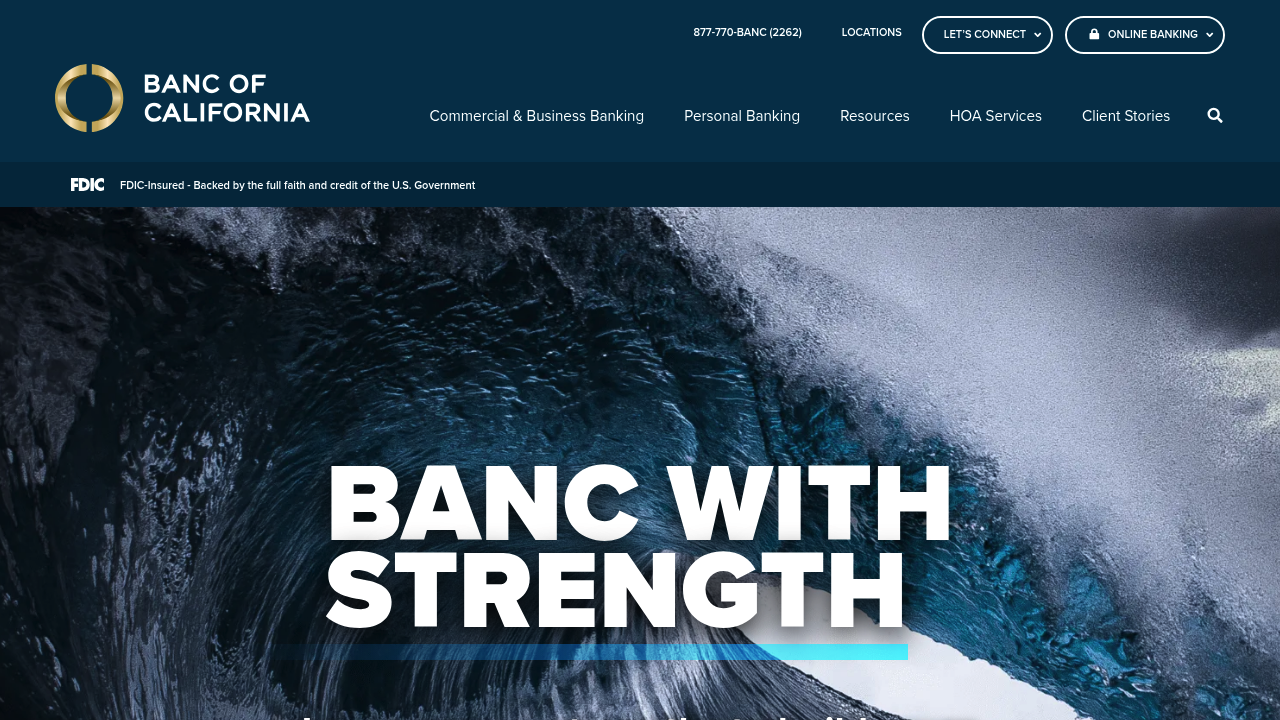Electric Power Distribution
221122

PeopleFund (TX)

 Brooklyn Cooperative FCU (NY)
Brooklyn Cooperative FCU (NY)

Banc of California (CO)
With a commitment to serving both personal and business banking needs, Banc of California stands out as a trusted partner in financial growth.
SBA Loans for Electric Power Distribution: Financing Growth in Energy Infrastructure
Introduction
Electric power distribution companies ensure that electricity generated from power plants is delivered safely and efficiently to residential, commercial, and industrial customers. Classified under NAICS 221122 – Electric Power Distribution, this industry includes utilities and businesses that operate local power lines, transformers, substations, and smart grid systems. While demand for electricity is constant and vital, distribution companies face financial hurdles including high infrastructure costs, safety compliance, equipment upgrades, and the integration of renewable energy sources.
This is where SBA Loans for Electric Power Distribution Companies can provide crucial support. Backed by the U.S. Small Business Administration, SBA loans offer longer repayment terms, lower down payments, and government-backed guarantees. These loans help distribution businesses modernize infrastructure, expand networks, invest in smart grid technology, and stabilize cash flow while meeting growing energy demands.
In this article, we’ll explore NAICS 221122, the financial challenges power distributors face, how SBA loans provide solutions, and answers to frequently asked questions from energy-sector businesses.
Industry Overview: NAICS 221122
Electric Power Distribution (NAICS 221122) includes businesses that provide:
- Operation of electric power lines and substations
- Distribution of electricity to households, businesses, and industries
- Maintenance of transformers, meters, and safety systems
- Integration of renewable energy into local grids
- Smart grid and energy efficiency projects
This industry is infrastructure-heavy and highly regulated, requiring significant investments in technology, compliance, and maintenance.
Common Pain Points in Power Distribution Financing
From Reddit’s r/energy, r/utilities, and Quora discussions, electric power distributors often highlight these challenges:
- High Infrastructure Costs – Power lines, transformers, and substations require large upfront investments.
- Regulatory Compliance – Federal, state, and local agencies impose strict safety and environmental standards.
- Technology Upgrades – Smart grid systems and renewable energy integration require constant investment.
- Cash Flow Gaps – Payment delays from customers, especially in regulated environments, can affect liquidity.
- Disaster Preparedness – Storms, wildfires, and natural disasters drive costly infrastructure repairs.
How SBA Loans Help Electric Power Distribution Companies
SBA financing provides affordable, flexible capital that helps utility businesses invest in infrastructure, expand service areas, and meet regulatory demands.
SBA 7(a) Loan
- Best for: Working capital, payroll, compliance, or refinancing debt
- Loan size: Up to $5 million
- Why it helps: Provides liquidity for employee wages, equipment maintenance, and compliance projects
SBA 504 Loan
- Best for: Infrastructure upgrades, substations, and equipment purchases
- Loan size: Up to $5.5 million
- Why it helps: Ideal for purchasing transformers, vehicles, or expanding distribution facilities
SBA Microloans
- Best for: Small or local distribution contractors
- Loan size: Up to $50,000
- Why it helps: Useful for safety gear, small tools, or covering startup expenses
SBA Disaster Loans
- Best for: Businesses impacted by storms, wildfires, or other emergencies
- Loan size: Up to $2 million
- Why it helps: Provides recovery funds for damaged lines, lost revenue, or rebuilding operations
Step-by-Step Guide to Getting an SBA Loan
- Check Eligibility – Must be a U.S.-based, for-profit business with good personal credit (typically 650+)
- Prepare Financial Documents – Include tax returns, P&L statements, infrastructure plans, and compliance records
- Find an SBA-Approved Lender – Some lenders specialize in energy, utilities, and infrastructure financing
- Submit Application – Provide a business plan highlighting grid expansion, technology upgrades, and safety compliance
- Underwriting & Approval – SBA guarantees reduce lender risk. Approval generally takes 30–90 days
FAQ: SBA Loans for Electric Power Distribution Companies
Why do banks often deny loans to power distributors?
Banks may view these businesses as risky due to high infrastructure costs, regulatory oversight, and disaster risks. SBA guarantees reduce this risk and improve approval chances.
Can SBA loans finance substations, transformers, and smart grid systems?
Yes. SBA 7(a) and 504 loans can fund large infrastructure upgrades, renewable energy integration, and safety systems.
What down payment is required?
SBA loans typically require 10–20% down, compared to 25–30% with traditional financing.
Are startup energy contractors eligible?
Yes. Smaller utility contractors with municipal contracts or subcontracting agreements may qualify for SBA microloans or 7(a) financing.
What repayment terms are available?
- Working capital: Up to 7 years
- Equipment/facilities: Up to 10 years
- Real estate/infrastructure: Up to 25 years
Can SBA loans support disaster preparedness and compliance?
Absolutely. Many power distributors use SBA financing to invest in emergency response equipment, safety systems, and compliance technology.
Final Thoughts
The Electric Power Distribution industry is vital for communities and businesses but faces financial hurdles tied to infrastructure costs, compliance, and disaster recovery. SBA Loans for Power Distribution Companies provide affordable, flexible financing to stabilize cash flow, purchase equipment, and expand networks.
Whether you’re a regional utility, a local contractor, or a startup providing energy services, SBA financing can provide the resources you need. Connect with an SBA-approved lender today and explore your funding options under NAICS 221122.
Filters
Tags
#Preferred Lenders Program
#SBA Express Program
#Existing or more than 2 years old
#Startup
#Loan Funds will Open Business
#Fixed Rates Startup
#Change of Ownership
#New Business or 2 years or less
#7a General
#Variable Rates
#Fixed Rates
#Standard Asset Base Working Capital Line of Credit (CAPLine)
#International Trade Loans
#Export Express
#7a with WCP
#Contract Loan Line of Credit (CAPLine)
#7a with EWCP
#Unanswered
#Preferred Lenders with WCP
#Preferred Lenders with EWCP
#Seasonal Line of Credit (CAPLine)
